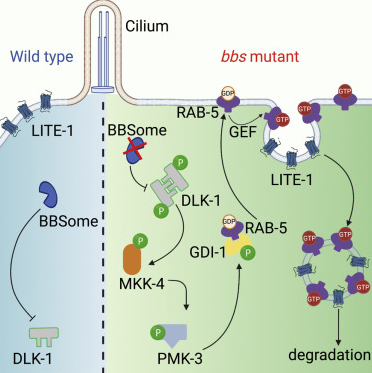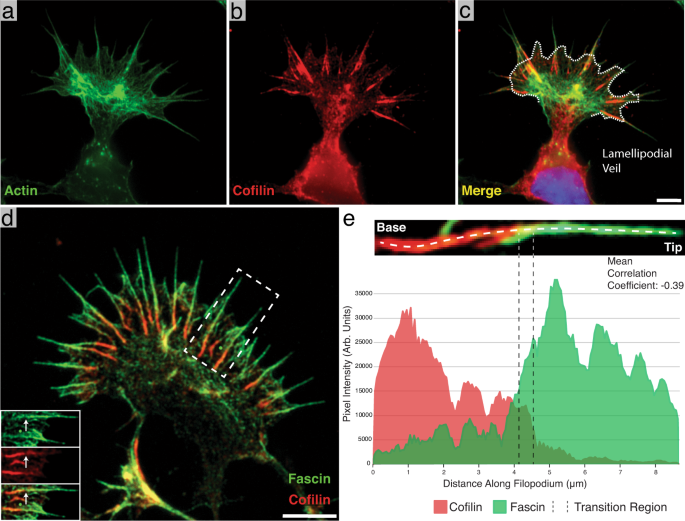2022-05-31 ミシガン大学
ミシガン大学生命科学研究所の研究チームは、『Developmental Cell』誌に発表した研究において、これらの仮説に対する初めての直接的証拠を提示しました。この研究成果は、少なくともある共通のモデル種において、BBSomeが繊毛の外側で視力を維持するために機能していることを証明するものである。
この発見は、LSIの教員であるショーン・スーの研究室が、線虫という小さな回虫が目のような器官を持たないにもかかわらず光を感じる仕組みを調べていたときに始まりました。線虫は神経系が単純でよくマッピングされているため、Xu研究室では、さまざまな感覚の背後にある基本的な生物学を理解するためのモデルとして利用している。
<関連情報>
- https://news.umich.edu/roundworms-offer-new-insights-into-bardet-biedl-syndrome/
- https://www.cell.com/developmental-cell/fulltext/S1534-5807(22)00333-1
線虫の光合成におけるDLK-MAPKシグナルを介したBBSomeの繊毛非依存性機能 A cilia-independent function of BBSome mediated by DLK-MAPK signaling in C. elegans photosensation
Xinxing Zhang,Jinzhi Liu,Tong Pan,Alex Ward,Jianfeng Liu,X.Z. Shawn Xu
Developmental Cell Published:May 31, 2022
DOI:https://doi.org/10.1016/j.devcel.2022.05.005

Summary
Bardet-Biedl syndrome (BBS) is a genetic disorder that affects primary cilia. BBSome, a protein complex composed of eight BBS proteins, regulates the structure and function of cilia, and its malfunction causes BBS in humans. Here, we report a cilia-independent function of BBSome. To identify genes that regulate the C. elegans photoreceptor protein LITE-1 in ciliated ASH photosensory neurons, we performed a genetic screen and isolated bbs mutants. Functional analysis revealed that BBSome regulates LITE-1 protein stability independently of cilia. Through another round of genetic screening, we found that this cilia-independent function of BBSome is mediated by DLK-MAPK signaling, which acts downstream of BBSome to control LITE-1 stability via Rab5-mediated endocytosis. BBSome exerts its function by regulating the expression of DLK. BBSome also regulates the expression of LZK, a mammalian DLK in human cells. These studies identify a cilia-independent function of BBSome and uncover DLK as an evolutionarily conserved BBSome effector.


